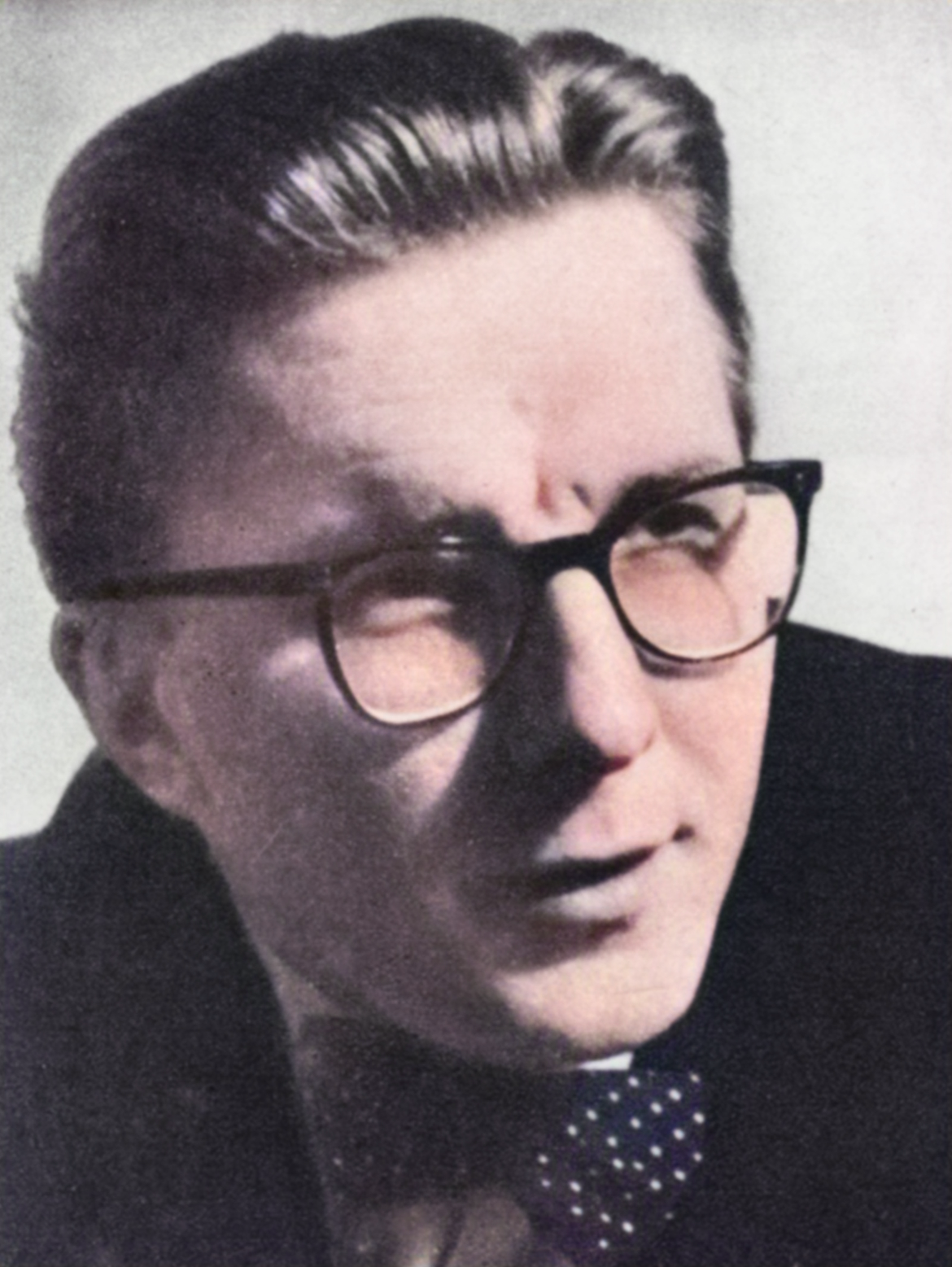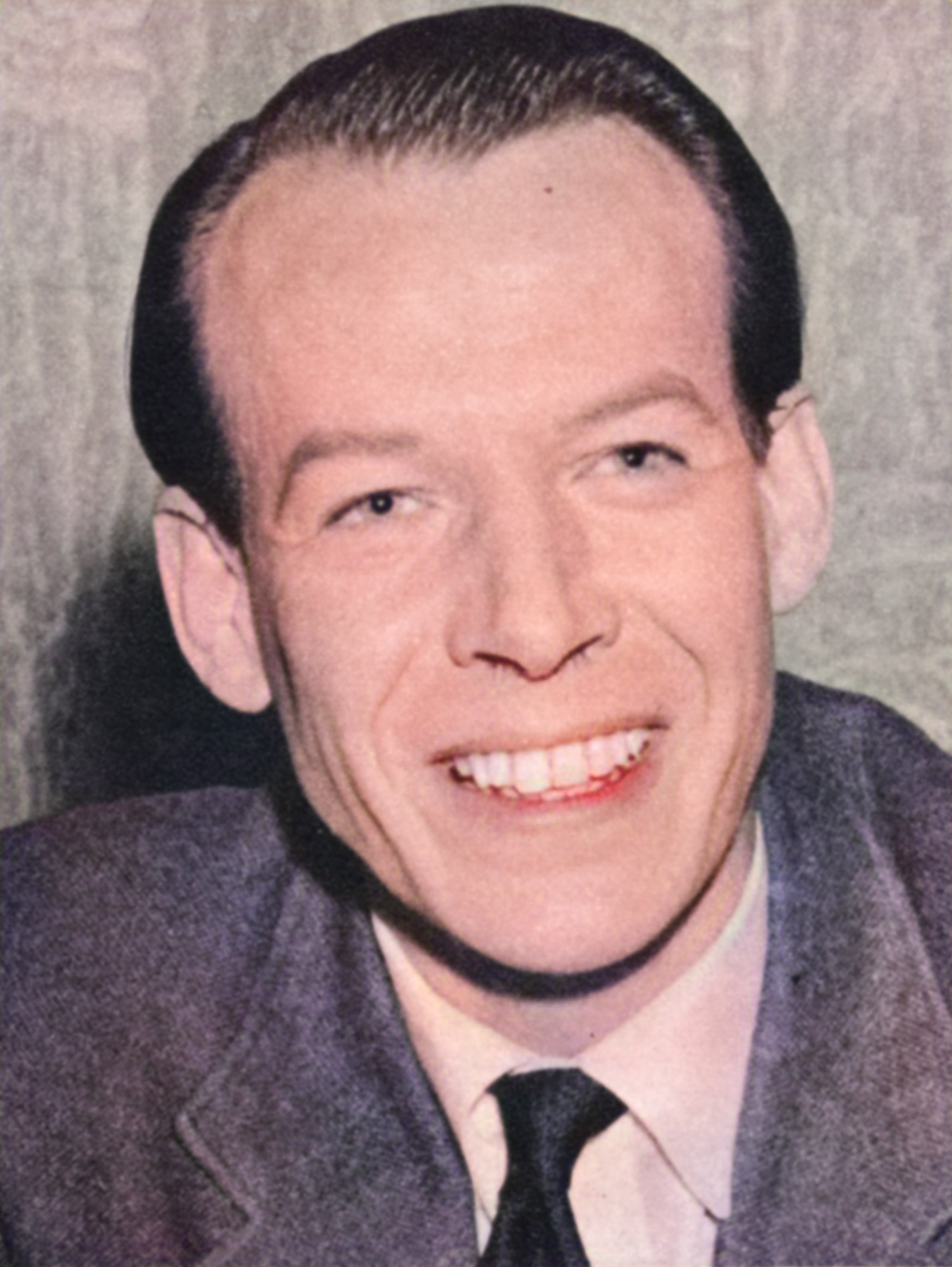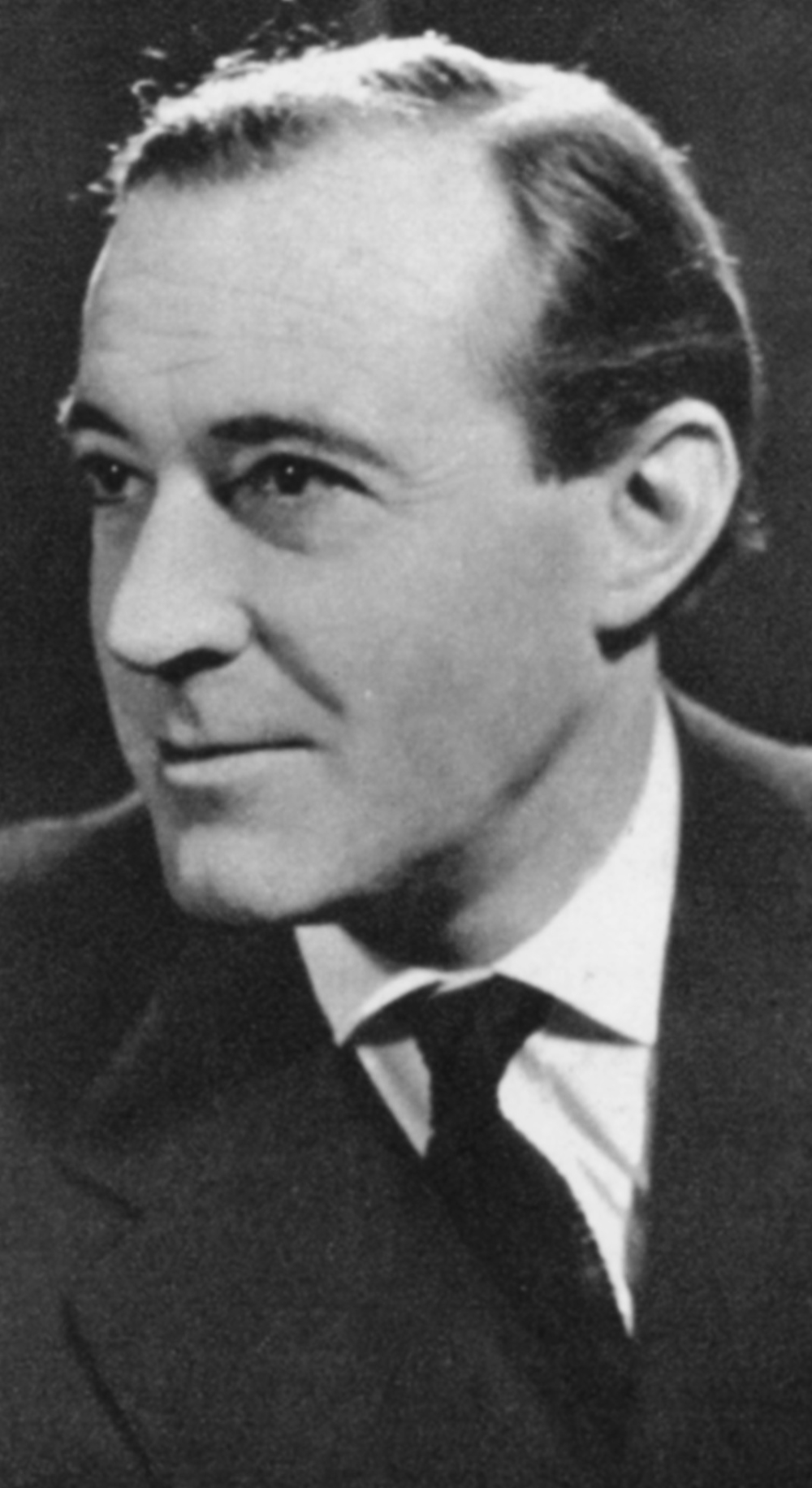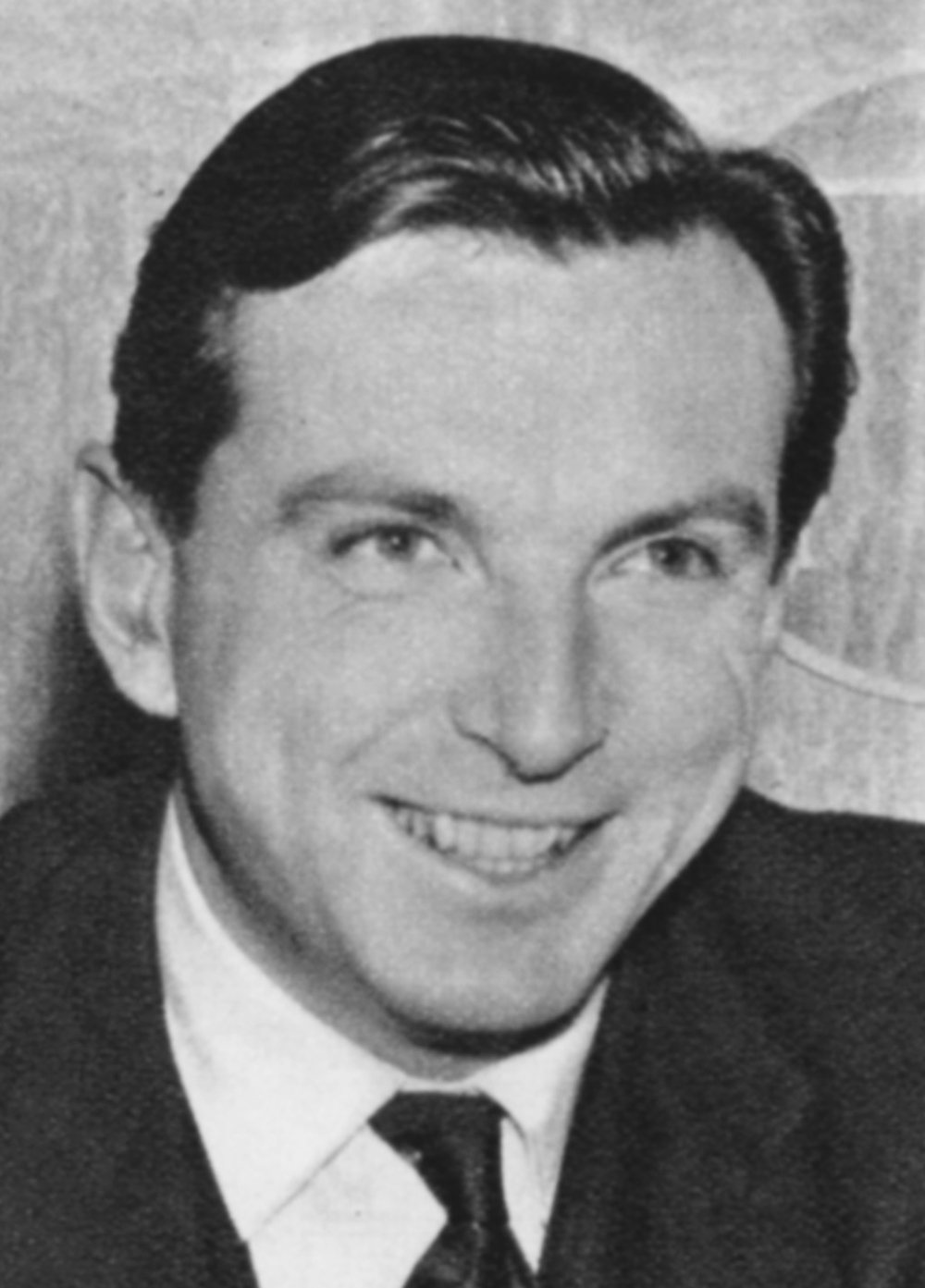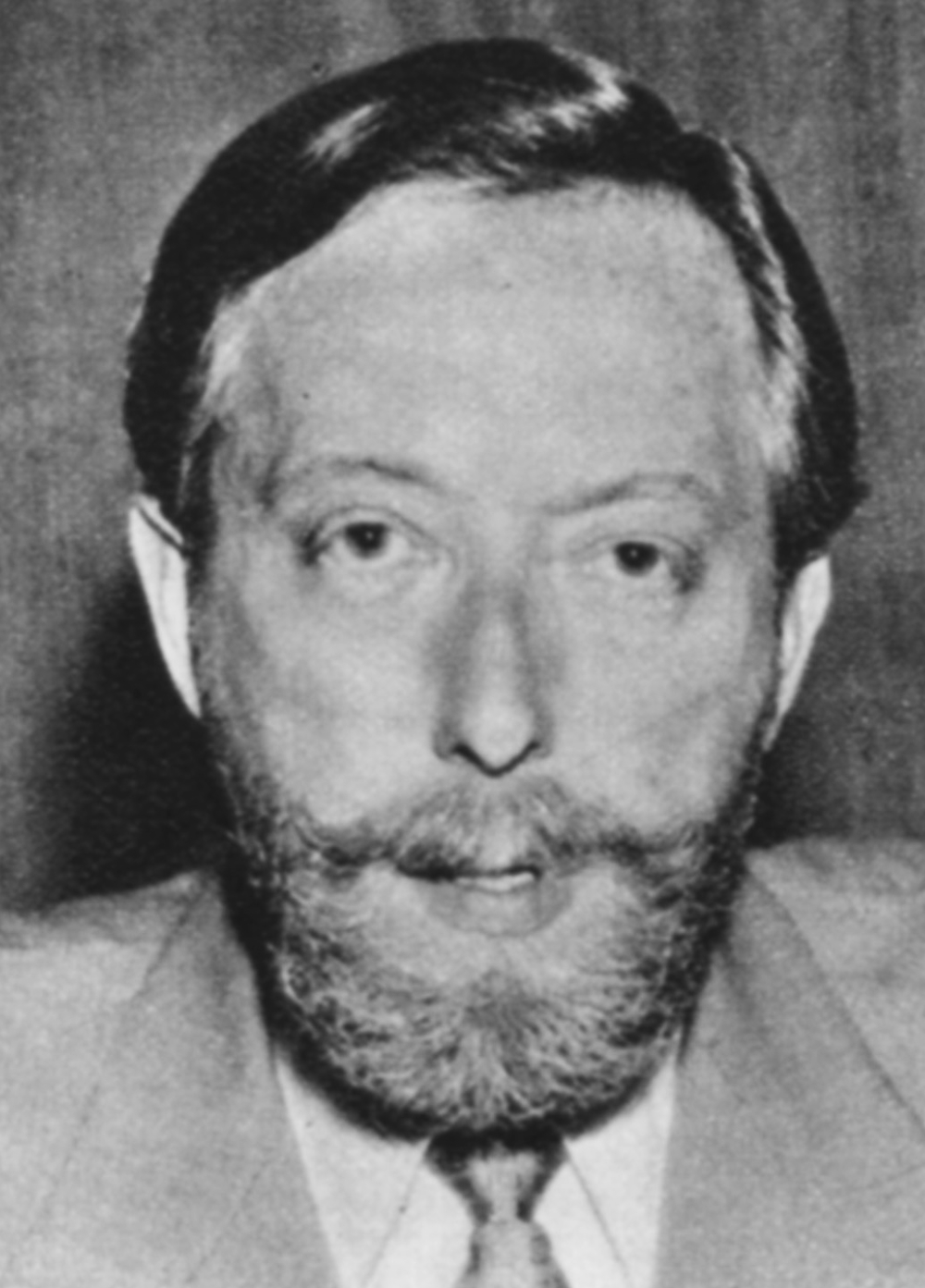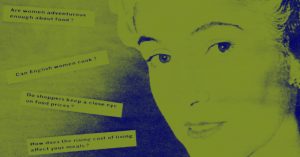Behind The News
With some of the Newscasters

With some of the Newscasters
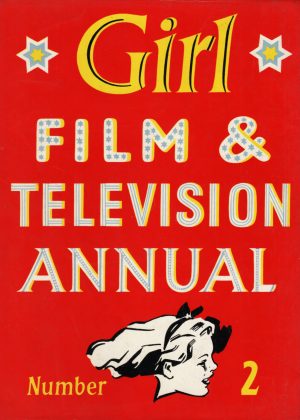
If it is quick and widespread fame your brother or boy-friend yearns for, then newscasting is the job for him! No other television personalities make more regular appearances, none is more closely watched, or minutely criticised for mannerisms than newscasters.
The newscaster, however, must bring to his job a good deal more than just handsome features. He must think, write and speak clearly, be able to work swiftly and accurately under pressure, know something about everything — and have an engaging personality — the kind that wins friends and influences people, especially viewers.
One of the men who has made the top grade in this exacting job is Robin Day. So successful was his newscasting that he was elected ‘Personality of 1957′ by the Guild of Television Producers.
In two years, Robin followed the meteoric TV course of Chris Chataway, who had received a similar honour before switching his attentions to BBC feature programmes.
Known to viewers for his horn-rimmed spectacles and spotted bow-ties, and the toughest interviews on any British network, Robin is a ‘no gimmick merchant’ through and through. Indeed, he is considered the perfectionist of Independent Television News.
A past-president of the Oxford Union (a coveted office held before him by many Cabinet Ministers in their undergraduate days), he is a sharp thinker, and a firm believer in presenting the truth to viewers, often exhausting himself in his search for it.
Journalists, in particular, admire his intense feeling for research, and his uncompromising determination in difficult encounters.
Most impressive was an unscripted interview he managed to organise with Colonel Nasser.
When the Egyptian President met his interviewer’s barrage of awkward questions with evasive answers, Robin pinned him down with quotations from his books and political speeches.
It was an interview that made television history.
But Day does not always play the role of Grand Inquisitor. Owlish and puckish by turns, he is master of the graphic ‘sign-off’. One of his perkiest came from an Egyptian manhole — ‘Now I return you from the sewers of Port Said to the studios of ITN.’
In his unceasing quest for news, Robin has travelled some 30,000 miles, covering fifteen countries — and all this in one year!
The picture at the BBC is a little different. Newscasters working for the Corporation are preferred to be ‘on the spot’ in the studio.
Robert Dougall, for instance, has been talking to BBC audiences since 1934, when he became an Overseas Services announcer.
When war interrupted the ordinary pattern of life, he was blitz-front reporter in London and Plymouth, before sailing with convoys to Murmansk.
These wartime assignments did much to help along his languages — for Robert speaks French, German and Russian.
Married, with a teenage daughter, and a six-year-old son, he tells this good-humoured story against his wife, Nan.
Their first meeting was when she was auditioned by him for a BBC job. Nan did jolly well until she came to the word ‘misled’ in her script. But she was so nervous over the whole business that she pronounced it ‘mizzled.’ Robert, unable to keep a straight face, burst out laughing — and that broke the ice.
Talking of nerves, nothing seems to ruffle the Dougall calm. Whatever desperate situation rages in the studio, it is a serene and composed Robert who goes on the air to face the viewers.
‘Once the camera began to smoke a few seconds before I went on the air!’ he reminisces. ‘And sometimes the monitor screen packs up, which means you are commenting on a piece of filmed news without seeing it. And, of course, there is always the fresh news that comes in while you are talking.
‘It is my nightmare that one day I’ll get the pages of reading news mixed. Twelve to sixteen of them must be in correct order, with “cues” for the filmed insets.’
But doubtless, if the nightmare ever became reality, Robert would find a quick solution and still look cool and calm!
Another BBC newscaster, dimpled, blue-eyed Richard Baker, will always be remembered by sound-studio personnel as The Man Who Stopped BBC Time.
Trying to sleep overnight in Broadcasting House for an early morning broadcast, Richard was disturbed by an electric clock that ticked away every thirty seconds.
Came the moment when he could stand it no longer. A nail-file carefully lodged in the mechanism finally ensured his peace. He slept!
But at seven a.m. next day every clock in Broadcasting House read one-thirty a.m.!
The confusion that reigned among announcers and technicians alike, can be imagined. But it was a confusion that was totally eclipsed by Richard’s own, when he realised who was responsible for time standing still!
On this occasion his peace had been dearly bought—at the price of a reputation it took months to live down!
At one time an English Master (popular but not respected!), Richard took the advice of Form 4C, and vacated the life academic.
The popularity he’d enjoyed as a teacher followed him into newscasting. Heavy fan mail tumbles in for him daily. Some viewers even suggest ways of letting them know he’s got their particular message — and if Richard were to crook his little finger, or rub his nose during the news as often as requested, he’d soon find himself a master of sign as well as spoken language!
In his spare time, Richard writes lyrics for the BBC staff dramatic society, the Aerial Players. Guitar strumming — to a comb-and-paper accompaniment —i s another off-duty pastime!
School-mastering has yielded another recruit to television — Kenneth Kendall, whose shy grin is worth a whole host of viewers to the BBC.
After taking an M.A. in Modern Languages at Corpus Cristi College, Cambridge, Kenneth taught for a while at Hove.
In 1948 he did a temporary holiday relief as an announcer with the BBC, and was offered a permanent job at the end of it. Without much hesitation, the schoolmaster became the neat and sober-suited (a trait left by his 3½ years in the Coldstream Guards) announcer.
If a dazzling smile helps along the fortunes of some announcers, the wintry gleam of ITN’s Anthony Brown seems no less effective.
Dubbed the ‘egg-head’ of his numerically small calling, Anthony describes his expression as ‘gloomy and austere.’
The expression is no mere facade. He is really serious-minded, and extensive reading of history and biography have given him a general background of news-value second to none.
A man of many parts is Brian Connell — onetime reporter for a famous news agency, Naval Commando, parliamentary candidate, translator, and writer with at least eight books to his credit.
It was while reporting during the war that he was taken prisoner by the Japanese, and grew the elegant beard that earned him the studio nickname, ‘The Prof.’
No newscaster can claim such deep knowledge of life’s seamy side as Huw Thomas.
Called to the Bar in 1950, Thomas toured the Welsh courts as Marshal to Mr. Justice Ormerod, and also served in the office of the Public Prosecutor.
Newly ‘called’ barristers often wait months for a case. The day after qualifying, Huw attended Sessions, and joined the queue of briefless lawyers available to give legal aid to defendants.
A Teddy-boy, charged with razor-slashing, picked him to put his case. Huw did so with every word of eloquence in him.
But there came a brief when Huw was not defending but prosecuting.
‘I was not at all happy when it came to prosecuting unfortunate boys like that first Teddy-boy,’ Huw will tell you now, ‘and that is the simple reason why I answered an advertisement for a newscaster, with ITN, who had to be “under 35.” There was one snag — applicants had to have other qualifications, including a good speaking voice and the right kind of screen personality.’
A friend told him ‘Stick to crime, old boy—at least it is a steady living!’
Huw considered the advice, but still decided to join the queue of applicants at the ITN headquarters.
And again he was picked out of the crowd, this time by News-Editor Geoffrey Cox, to help tell the world what is NEWS.
About the author
Alan Morris was a feature writer


